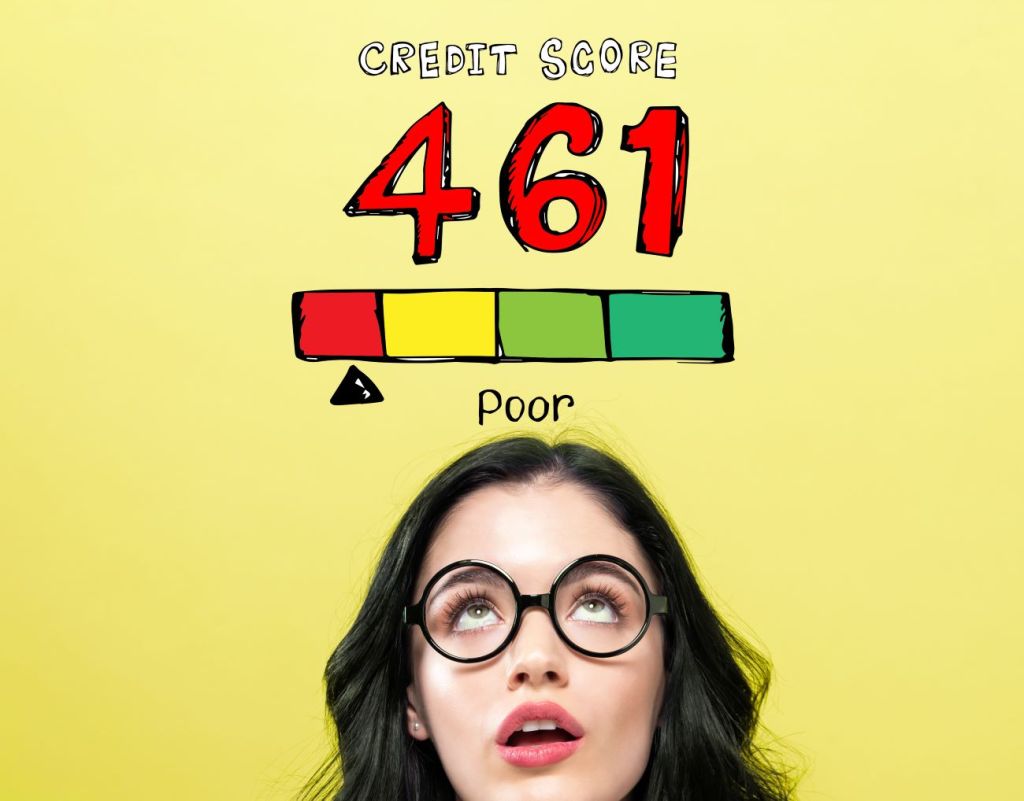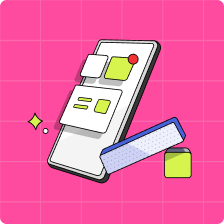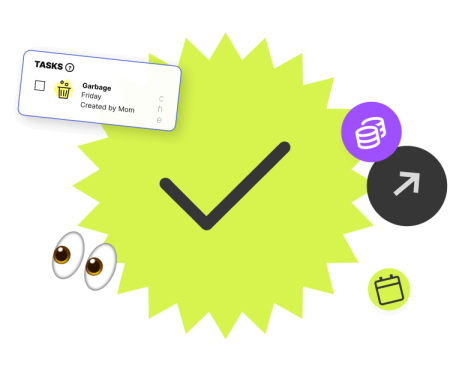Student loans. Credit card bills. Car payments. The list of monthly bills for a young adult can go on and on. If your teen doesn’t have a good handle on money management today, they may struggle to keep up with their debts tomorrow. But even if they get in over their head a few years down the road, there may be a way forward with debt consolidation. By explaining the pros and cons of debt consolidation to your tweens and teens, you can equip your kids with this financial tool—and, best of all, a better understanding of debt.
Key takeaways
- Debt consolidation places multiple outstanding debts under one large loan, sometimes with lower interest rates than the original debts (but not always).
- Bankruptcy is not the same as debt consolidation. Bankruptcy is a legal process that involves multiple steps, legal fees, and damages your credit score for many years.
- Usually a debt consolidation loan means a financial institution pays down the smaller debts, and you pay them back, or the financial institution provides you with a large loan, which you must use to pay your own debts.
- Qualifying for a debt consolidation loan depends on a person’s credit score, as well as their monthly income weighed against their outstanding debts.
- Student loans usually come with much lower interest rates, which means a debt consolidation loan may not offer a better option for paying off student debt.
What is debt consolidation?
Debt consolidation rolls two or more debts into one monthly payment. In other words, debt consolidation is one giant loan that will cover all the smaller loans. This means, instead of multiple payments scattered throughout the month, there’s just one single simplified payment. Not only can this ease stress for some people who find multiple bills overwhelming, but it may also save some cash every month through reduced interest rates, although not always. A decent credit score is needed for a good interest rate, and other factors are also considered, such as your income and your assets.
That being said, there’s no shame in turning to debt consolidation to manage overwhelming bills and repayments, and your teen is not a failure if they ever need this option. It’s estimated that the average Canadian owes $1.85 for every dollar of disposable income. This means that many people may turn to debt consolidation to pay down debts and improve their credit scores in the process. It’s a better option than damaging their credit through declaring bankruptcy as a last resort.
If your tweens or teens need a better understanding about debt before diving into consolidation loans, our Debt 101 Guide is a good place to turn.

What’s the difference between debt consolidation and bankruptcy?
Both options are ways to deal with debt, and both debt consolidation and bankruptcy will affect your credit score. But there is a difference: While consolidating debt may affect your teen’s credit score in the short term, paying back debts faster through one big loan should bump their credit score higher than it was before they consolidated their debt.
Bankruptcy, however, will affect their credit score for years. This is a legal process that removes the responsibility of debt from an individual (or business). While being suddenly debt-free sounds like magic, there are serious financial consequences. First, any assets could be sold to lenders, such as a car (when property is taken away and sold, it’s called “repossession”). There are also fees involved, possible meetings with creditors, and mandatory financial counselling sessions. They’ll also have to submit proof of income every month for the duration of their bankruptcy period, usually nine months. Finally, they’ll be given the lowest possible credit rating for a period of six or seven years for a first bankruptcy, and 14 years for a second bankruptcy or more.
Why would you need debt consolidation?
Debt consolidation can offer a big advantage. By combining multiple debts together, you could get a lower overall interest rate when compared to paying them all down individually. Lower rates mean that more money goes to the original debt, and less money is gobbled up by interest. With the extra money, you can either make bigger debt payments to pay it all down faster, or have some breathing room in your monthly budget to build up some savings. For some people who get overwhelmed by multiple debts, a single payment can also bring peace of mind—improved mental health is worth the extra step.
If your debt-free teen says, “That’ll never happen to me,” remind them there’s no crystal ball to show us our future. Let’s say that in a few short years, your teen is in their early 20s and juggling a car loan, household bills, and multiple credit cards with high interest rates. Then something unexpected happens, such as job loss, an accident or illness, or they simply struggle to manage their loans and credit cards. Debt can creep up until it becomes overwhelming—and feel nearly impossible to pay back. That’s where debt consolidation could come in.
How does debt consolidation work?
To consolidate debts, your teen would start by speaking to a credit specialist at a bank, credit union, or financial institution. Based on their credit score, income level, outstanding debt balances, and future financial goals, a credit specialist can suggest different options. Usually, a debt consolidation loan works one of two ways:
- Either the financial institution issuing the consolidation loan will pay off all of the individual’s own separate debts on their behalf, and the individual pays the financial institution one single monthly payment, or;
- The consolidation loan is transferred to the individual’s account, and it’s their responsibility to pay off their own separate debts, leaving them with the single loan payment.
Read more about How to pay off debt fast: A guide for parents and teens.

Will consolidating debt affect your credit score?
In the short term, yes. Applying for a new loan will trigger a hard credit inquiry, which may lower your kid’s credit score. But if your teen already struggles to make regular payments on credit cards and bills, that could damage their credit score even more than an inquiry. However, by making regular payments of a single debt consolidation loan, they’ll actually improve their credit score over the long run.
Learn more about credit reports here: Credit Reports 101: A Guide for Parents and Teens.
The pros and cons of debt consolidation
Debt consolidation is one way your teen can dig themselves out of debt, but it’s not a magic bullet. Here are a few pros and cons to consider before applying for a debt consolidation loan:
Pros of debt consolidation
A single, easier payment
Instead of constantly tracking all the outstanding payments with different due dates, your teen can simplify repayment by holding the debt at just one financial institution, with only one monthly payment.
A lower interest rate
Especially when there’s credit card debt at 19 per cent or more, a debt consolidation loan can mean a lower interest rate. An unsecured personal loan with a 10 per cent interest rate, for example, would mean less money eaten up by interest, potentially saving your teen hundreds (or even thousands!) of dollars as they gradually pay back the loan.
Likely lower monthly payments
By consolidating debt, their monthly payments may be less, as they’re often spread out over a longer term, which can be an advantage from a monthly budgeting standpoint. As long as there are no early repayment penalties on the type of debt consolidation loan they have, your kid could use the money saved each month to make extra payments and pay off the debt in less time.
An improved credit score
By paying off outstanding bills (hooray!), your teen will not only be debt-free, but they’ll also bump up their credit score. Making regular monthly payments on time, and eventually paying off the loan, should help put them on the path to better credit.
Cons of debt consolidation
Interest costs could be more
While it’s possible to secure a lower interest rate on a consolidated loan, compared to what you’ll pay on a credit card, borrowers without a good credit score are unlikely to qualify for a more competitive interest rate. They could end up paying interest that’s higher than what they’re already paying on current debts. Or, if the loan is spread out over many years, they could end up paying a lot more in interest overall. Remind teens to check all of the costs involved before signing a loan document.
A missed payment is a big deal
Your teen might be expected to pay down the loan quickly, but missing a payment on a debt consolidation loan can damage their credit score and possibly add extra fees on top. They’ll need to make sure they can cover the new payment when they sign, every single month. And be aware—if they can’t make payments on a secured loan that uses their house or vehicle as collateral, for instance, they could be in danger of losing these valuable essentials.
A co-signer may be needed
Without their own collateral, such as a car or investment accounts, you may need to co-sign your teen’s debt consolidation loan. This also means that you, or whoever co-signs, is legally on the hook to repay the loan if your teen skips payments or defaults on the loan altogether. Co-signing can also impact your own credit score.
Consolidation won’t help with underlying financial issues
Does your teen need to curb spending, or set reminders to pay bills on time? Bad financial habits could put them back to square 1. If they’re consolidating to pay off maxed-out credit cards or other types of consumer debt, encourage them to take the time to develop healthy financial habits first.
Read more: 10 money mistakes teens make and how to avoid them.
How do debt consolidation loans work?
Anyone thinking about consolidating debt first needs to qualify. Lenders will look at a credit report to start; if a person’s score is low, they may only qualify for a loan at a high interest rate, or possibly not get a loan approved at all. The range for debt consolidation loans is somewhere between six per cent and 36 per cent, all hinging on current interest rates, credit scores, debt-to-income ratios, and other factors lenders use to determine a person’s creditworthiness.
Here are the types of loans typically available to individuals looking to consolidate their debts:

Personal loan
If your teen is 18 or older with a permanent address, a regular income, and some kind of credit history, a personal loan could be an option for debt consolidation. Terms and rates can vary—unsecured personal loans (without collateral) tend to have higher interest rates than secured personal loans. Expect both secured and unsecured rates to be somewhere between 15 per cent and 45 per cent. Note that lenders cannot legally charge more than 60 per cent interest annually.
Home equity line of credit (HELOC)
Your teen may not own a home for years, of course. But if and when they do, a home equity line of credit, or HELOC, leverages the equity of their home by securing a lower interest rate on debt consolidation. The advantage here is in using their property as collateral; the disadvantage is the risk of losing their home altogether if they can’t make payments. But if in the future your teen has solid equity in their home, which is the amount owed after subtracting the mortgage from the value of the home, this could be the best debt consolidation option with the lowest interest rates—usually sitting somewhere between 0.5 per cent and two per cent over the prime interest rate.
Line of credit
A financial institution may offer an unsecured line of credit if your teen has good credit and a regular income. This is a fairly straightforward option that could help them pay down a few debts at a lower interest rate, usually somewhere around four per cent or more, and it usually comes with access to this credit again once it’s paid down. The key is to remain disciplined with credit cards moving forward, or your teen could end up juggling credit cards all over again, plus a line of credit on top.
Credit card balance transfers
Credit card companies sometimes offer low-interest-rate balance transfers to help their customers consolidate debt. The catch is, if your teen doesn’t pay off their balance by the end of the low-interest period, they may end up paying the high regular credit card interest rate, which can be about 20 per cent.
Read more: How to explain what a credit card is to your kids.
Can student loans be rolled into a debt consolidation loan?
If your teen ends up with significant student loan debt, they may wonder about consolidation once they start paying these loans back. Keep in mind that if their loan is with the government, they may qualify for a repayment assistance plan. Plus, interest on student loans is often tax deductible. And finally, the interest charge on a debt consolidation loan could be much higher than what the government is charging for a student loan, which is often slightly more than the prime rate. Compared to interest rates for a personal loan in Canada, which can reach all the way up to 40 per cent or more, a student loan may be a student’s best deal.
Debt consolidation is usually a good idea for borrowers who have several high-interest loans, such as multiple credit cards. But for the greatest financial freedom, impress upon your kids the importance of identifying financial goals, plus making a budget and sticking to it, which will help them build a great credit score down the line.
That’s where Mydoh can help. It helps kids learn to track their earnings and spending, and even complete tasks set by you. And with your oversight, kids might learn to recognize signs of overspending that could lead to debt later on.
Not everyone has to turn to debt consolidation, but it’s not the end of the world if your teen needs this option to get their debt under control. Once you’ve given them a basic understanding of the debt consolidation process, they’ll be better equipped to make this financial decision for themselves—if and when they ever need it.
Download Mydoh and help build the foundation of financial literacy for your kids and teenagers.
This article offers general information only and is not intended as legal, financial or other professional advice. A professional advisor should be consulted regarding your specific situation. While the information presented is believed to be factual and current, its accuracy is not guaranteed and it should not be regarded as a complete analysis of the subjects discussed. All expressions of opinion reflect the judgment of the author(s) as of the date of publication and are subject to change. No endorsement of any third parties or their advice, opinions, information, products or services is expressly given or implied by Royal Bank of Canada or its affiliates.













